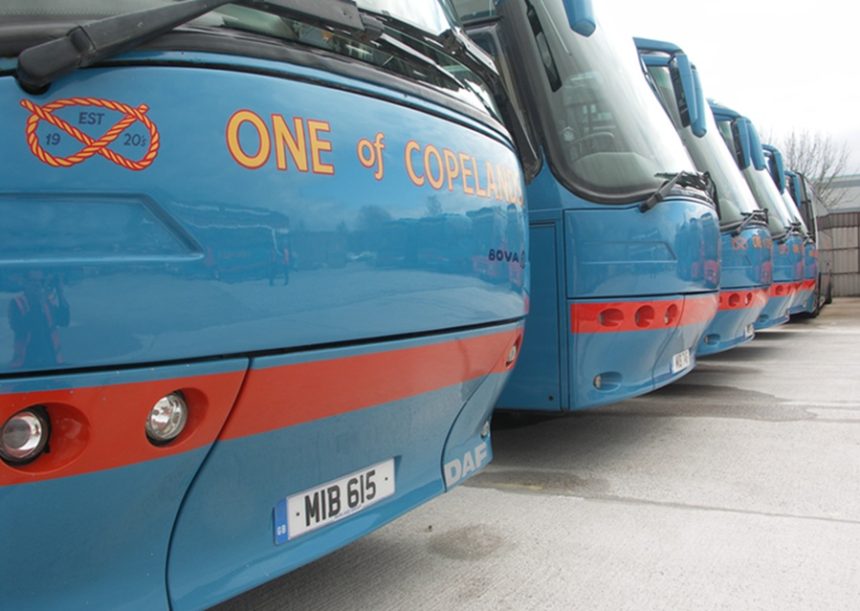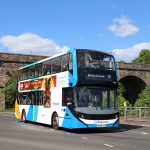RHA Coaches held its first hybrid in-person and online members’ meeting on Thursday 31 July, with Stoke-on-Trent operator Copelands Tours hosting the event thanks to organisation by Managing Director Jason Burn and the family-owned company’s team.
The gathering involved an update on coach industry matters by RHA Operations Manager – Coach Sector Andy Warrender and a legal session from Backhouse Jones Legal Director Jonathan Backhouse and Solicitor Laura Campbell.
Coach members were drawn from the Midlands and north-west England and further afield, with one travelling from South Wales. Among topics discussed were proposed changes to the Package Travel Regulations, Euro VI retrofit for coaches, parking, PSVAR, and European operations.
Mr Backhouse and Ms Campbell devoted time to maintenance-related topics, with the Maintenance Provision Rating Scheme (MPRS) and Maintenance Investigation Visit Report (MIVR) processes coming under scrutiny.
routeone will report separately on some of the major items covered at the RHA Coaches meeting in due course, but among the tourism-related topics explored was the difficulty of fake reviews posted to online platforms.
While those are removed relatively easily, Mr Warrender recommends that coach operators have a plan of action to deal with them. However, genuine poor reviews of a company’s services should not automatically be regarded as fake submissions. In those cases, liaison directly with the customer is the best option.
On SCR exhaust retrofit system that upgrade older coaches to Euro VI compliance, advice is that if a used vehicle with such equipment is bought, the new owner should be careful to ensure that telematics capability within the unit is maintained and fully functional.
If it is not, accreditation for the retrofit will be removed and a daily charge or fine could be incurred should the coach then enter a Clean Air Zone or a Low Emission Zone.
Several operators have been caught out by that, and Mr Warrender advises that any buyer of such a vehicle should discuss with the seller whether the existing telematics agreement can be transferred.
In addition to discussing MPRS and MIVR schemes, Mr Backhouse and Ms Campbell addressed the importance of operators monitoring AdBlue usage by vehicles that are equipped with SCR equipment.
DVSA is paying close attention to that seemingly innocuous metric, Mr Backhouse says. If less AdBlue than usual is being consumed, there is potential for the Agency to wonder whether an emulator device – which replicates SCR system performance – is fitted, although presence of those in the wider commercial vehicle field has waned and it is thought that none have ever been discovered on a coach or bus.
One operator present counters that by noting how AdBlue usage can naturally vary depending on the vehicle’s work profile, although Mr Backhouse adds that over the past six months, DVSA has come to expect consumption to be analysed to spot abnormal trends.
Lunch provided by Copelands followed the presentations, with RHA Coaches members voicing approach of the change to a hybrid approach for meetings. Further such events are expected to follow.


























